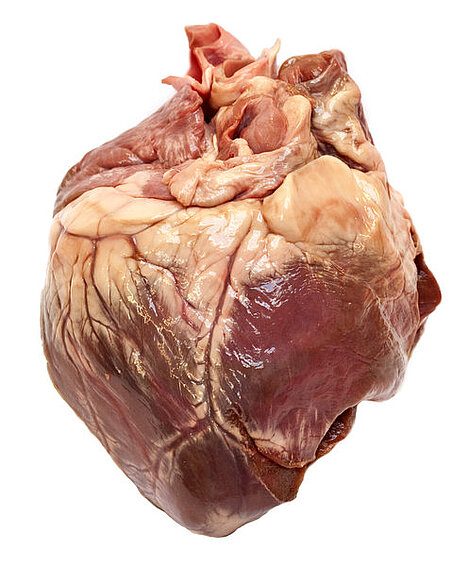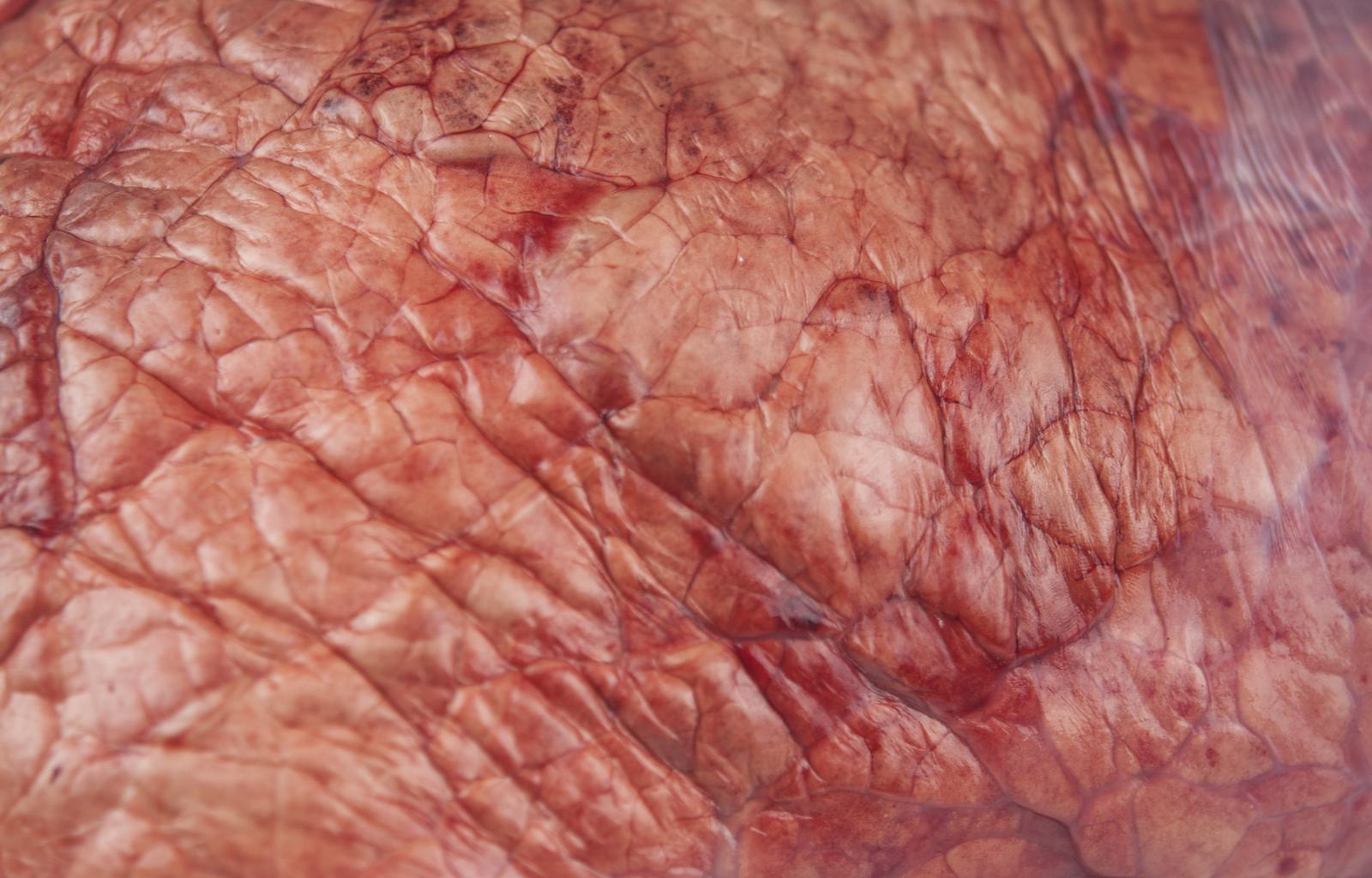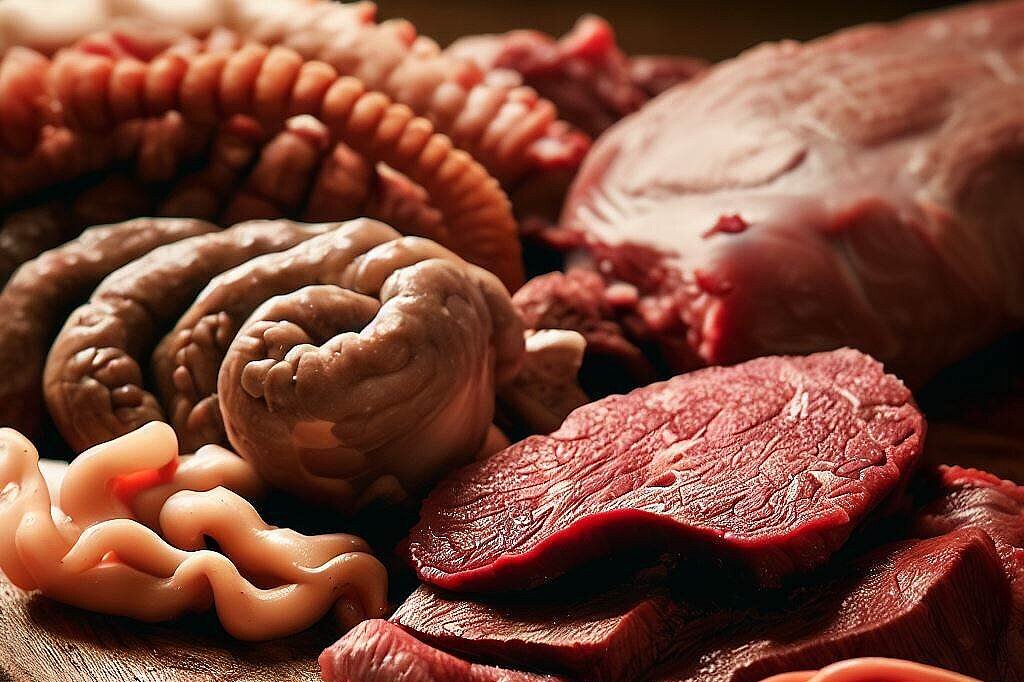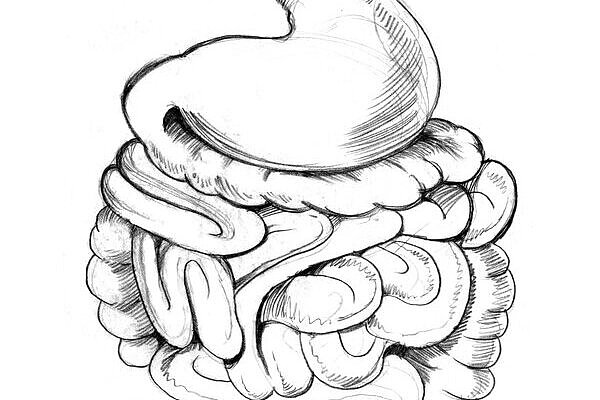Heart

What is the heart?
The heart is a muscular organ that pumps blood through the body. It consists mainly of muscle meat, but also of connective tissue, fat and blood vessels. Hearts come from different animals such as beef, lamb, chicken or turkey. The size, taste and nutritional content of the heart vary depending on the species.
What are the benefits of heart for dogs?
Heart is a high-quality and tasty muscle meat that contains many important nutrients for your dog. These include
- Protein: Heart is a good source of protein, which is important for muscle building, cell regeneration and your dog's immune system.
- Iron: Heart is rich in iron, which is responsible for the formation of red blood cells and the transportation of oxygen in the blood. An iron deficiency can lead to anemia and weakness.
- Taurine: Heart is one of the best natural sources of taurine, an amino acid that is important for heart function, vision and nerves in dogs. A lack of taurine can lead to heart problems and eye disease.
- Vitamin B12: Heart is one of the best natural sources of vitamin B12, which is important for your dog's cell division, DNA synthesis and nerve function. A lack of vitamin B12 can lead to anemia, nerve damage and digestive disorders.
What are the disadvantages of heart for dogs?
While heart is a healthy and tasty muscle meat, there are some disadvantages to be aware of. These include
- Fat content: Heart is relatively high in fat, especially that of cattle. Too much fat can lead to obesity, digestive problems and pancreatitis. Therefore, pay attention to the quantity and quality of the heart you feed your dog.
- Purine: Heart is a purine-rich ingredient, the breakdown of which produces uric acid. Too much uric acid can lead to gout, kidney stones and urinary tract infections. If your dog suffers from one of these diseases or is susceptible to them, you should only feed heart in moderation or not at all.
- Allergy: Heart can cause an allergic reaction in some dogs, which can manifest as a skin rash, itching, diarrhea or vomiting. If you suspect that your dog is allergic to heart, you should remove it from his diet and consult a vet.
How do I feed heart correctly?
Heart is a valuable part of a balanced dog diet, but should not be the only source of protein. Experts recommend that heart should make up around 10 to 15 percent of the daily meat ration. This means that you can give your dog around 20 to 30 grams of heart per kilogram of body weight per week. You can feed the heart raw or cooked, depending on what your dog likes better. However, make sure that you wash the heart well and don't include any bones or cartilage that could harm your dog.
If you cook the heart, you should not cook it too long so that it does not become too dry. You can also combine the heart with other ingredients such as vegetables, rice or potatoes to make a tasty dog food. If you feed the heart raw, you should freeze it first to kill any germs. You can also use the heart as a treat for dog training by cutting it into small pieces and drying it.
Heart is a healthy and tasty muscle meat that provides your dog with many important nutrients. However, it should not be the only source of protein and should only be fed in moderation. Also pay attention to the quality and preparation of the heart to avoid possible risks.
If you notice any signs of hypersensitivity or poisoning in your dog, you should see your vet immediately. We are not a substitute for a vet, but we try to be as accurate as possible. Every dog reacts differently and we recommend you get a second opinion or consult your vet if in doubt.
Stay healthy and take good care of your four-legged friend!😊
Similar to Heart
The lung is an organ that is responsible for breathing. It consists of many small air sacs that are filled with air and transport oxygen from the air into the blood. The lungs adapt to the expansion...
Most offal can be fed to dogs without any problems. The most important are Liver: It is rich in vitamin A, iron and copper. It supports blood formation and detoxification of the body.Heart: It is a...
Stomach has several advantages as dog food: It is rich in high-quality protein, which is important for muscle building and regeneration.It provides iron, which is needed for blood formation.It...
The liver is an organ that is found in all vertebrates and fulfills various important functions. Among other things, the liver is responsible for detoxifying the body, producing bile, storing...



